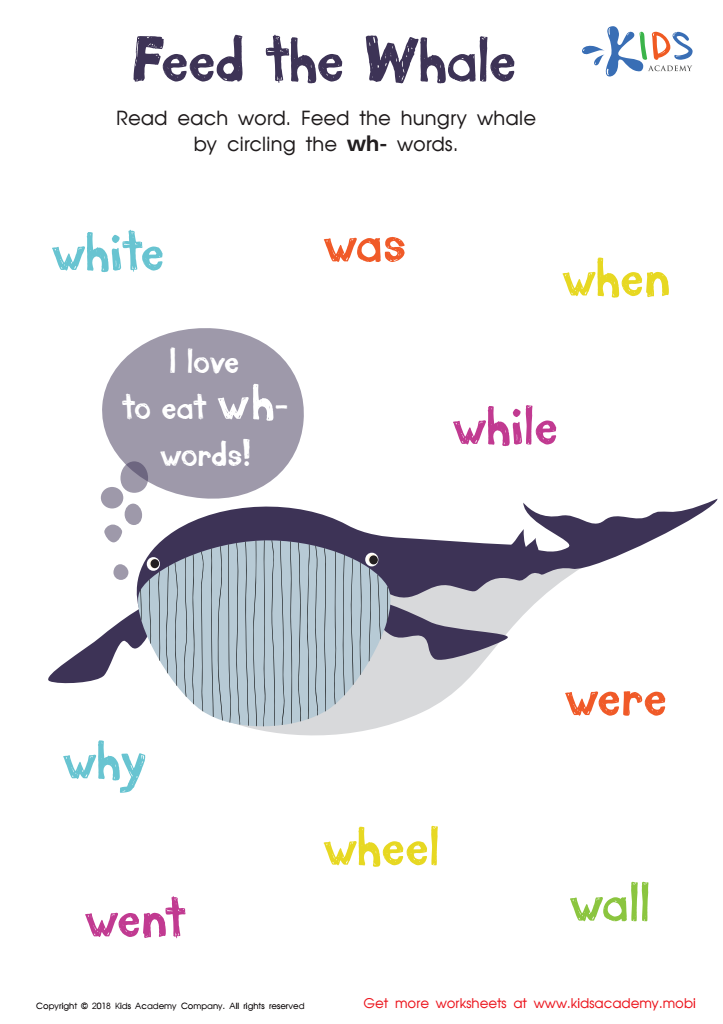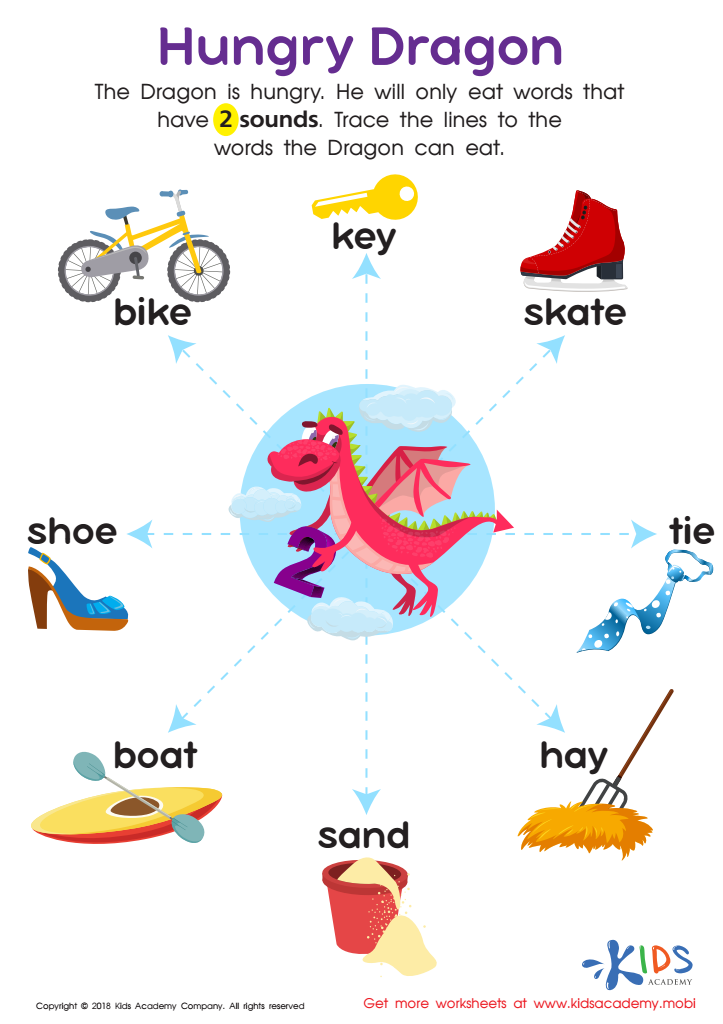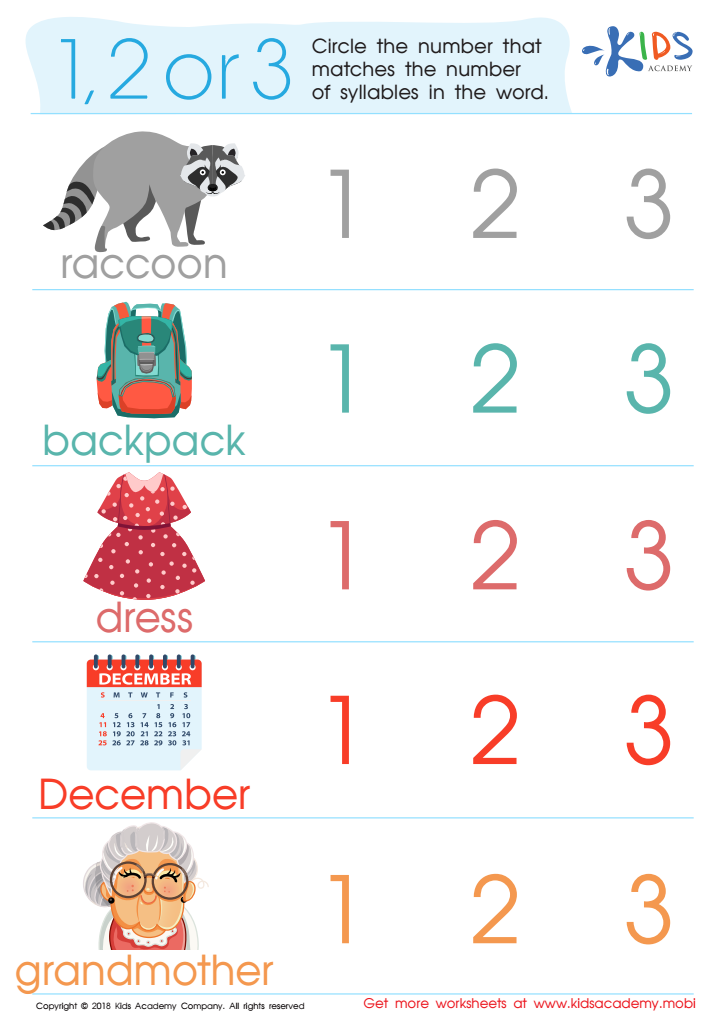Number Recognition Phonics Worksheets for Ages 6-8
3 filtered results
-
From - To
Enhance your child's number recognition skills with our engaging phonics worksheets designed specifically for ages 6-8! Our collection encompasses a variety of interactive and fun activities that promote early numeracy while integrating phonics learning. These worksheets help children identify and understand numbers through captivating exercises, such as coloring, tracing, and matching. The blend of visual and auditory stimulation aids in solidifying their knowledge, making math enjoyable! Perfect for both classroom settings and home learning, our resources cater to different learning styles. Give your child a head start on their educational journey—explore our number recognition phonics worksheets today!


Feed the Whale Worksheet


Hungry Dragon Worksheet


1, 2 or 3? Worksheet
Number recognition and phonics are fundamental skills critical for early learners aged 6-8, serving as the building blocks for their academic success and lifelong learning. Number recognition equips children with the ability to identify and understand numbers, fundamental for mathematical concepts such as addition or subtraction. When children can recognize numbers, they gain confidence in handling mathematical tasks, laying a strong foundation for future complex mathematical problem-solving.
Phonics, on the other hand, is essential for developing reading skills. It teaches children the relationship between sounds and the letters that represent them, enabling them to decode words independently. Mastering phonics allows children to read fluently and with comprehension, boosting their overall learning capacity.
Both skills are interconnected; strong numeracy and literacy abilities enhance children's cognitive development. Moreover, practicing these skills at a young age fosters independent thinking, problem-solving, and boosts self-confidence.
Parents and teachers play a pivotal role in supporting these areas through engaging activities and positive reinforcement. Their involvement ensures that children develop these essential skills effectively, helping them transition smoothly into more advanced academic stages and encouraging a love for learning that lasts a lifetime.

 Assign to My Students
Assign to My Students















